Max said, “We managed to dodge the press on the open grave. The woman was already tucked away in the emergency room with guards. Reporters were up front asking questions. They got no answers. Still no match for her prints, and no ID. But I want her out of there, too many civilians nosing up and down the halls.” He looked at Clyde. “I still can’t believe what you said about the cat.”
Joe nearly choked on his sandwich. He looked at Clyde, shocked, his yellow eyes narrowed. What are you doing? What the hell did you tell Max?
Clyde dealt out a handful of napkins and poured fresh coffee. “That sort of talent isn’t as unusual as you think, cats and dogs scenting to find the start of cancer, find a whole list of diseases. And, some of those animals have already been proven to help heal their patients.”
Joe relaxed, or nearly so. Except, they had to be talking about Joe’s young son, Buffin, who had found his healing talents while nursing a little dog at Dr. Firetti’s clinic. Max didn’t need to know any more, he was already too often puzzled by Joe and his family. What had Clyde told him, what had he suggested?
“I’ve been looking at cats on the Internet,” Clyde said. “A cat up in Oregon who knew when someone was going to die. He wouldn’t leave their bed, cuddling against them trying to soothe them as long as they were alive. Maybe it’s the same thing with the healing.”
Max shrugged. “I suppose,” he said doubtfully. “Like the scent detection of a good drug dog. Except drug dogs are trained to the skill. These sensing animals, if there is such a thing, would have to be born with the ability. And as to healing . . .”
Clyde picked up half his sandwich. “Same with healing. Ask John Firetti. He said the first time the kitten was in the clinic he hopped right up into that pup’s cage, snuggled up to the sick dog, and at once the dog wagged his tail and rested against Buffin. In a little while the dog was smiling and wanting to get up, wanting to walk around, acting as if the pain was gone.” Though Clyde himself was still puzzled over the event.
Ryan said, “John Firetti will tell you, he’ll tell you what Buffin can do. Besides, what harm to try? You said if the woman doesn’t get better in Recovery the hospital wants her in a nursing home, that she needs more quiet and rest.” She looked at Max quietly. “She needs to get well enough to give you some information. And maybe Buffin can help heal her. She’ll have good care, good nurses, she’ll be just five minutes from Emergency. Why not try it?”
The chief said nothing.
“Having a pet,” Ryan said, “a little cat to cuddle, could calm her, might cheer her where nothing else would.” But Ryan knew that Joe’s buff kitten could do more than just calm a patient.
Max said, “No nursing home would bother with an animal. And the cost . . . My budget won’t handle guards twenty-four/seven.”
“That new little nursing home over near the foreign car sales,” Ryan said, “near Clyde’s shop. They’re small. Ten patients, and they’re nice people, I know the manager and one of the nurses. I could talk with them. It isn’t far from the vet clinic, John Firetti could check on Buffin, check on them both,” she said, grinning. “It has no business sign, it looks like an ordinary house. Mirrored windows so when the lights are off you can’t see in, alarms on all the windows. The owner and two of the nurses carry, and are well trained. Is she well enough to go there?”
“And,” Max said, “if her attacker sees us move her? Sees the ambulance and follows it, knows she’s there? Is waiting for another chance at her before she talks? We have guards on her room, but if he catches us moving her out . . .”
“You’re a cop, you can figure that out. Dress her as a medic, switch with a woman medic bringing in a patient? Send her away in the supposedly empty ambulance . . . Is she well enough to walk? Drive the ‘empty’ ambulance into the fire station like they always do, and switch her into an old car?”
Max sighed. Arguing with Ryan was as bad as arguing with Charlie. Except that Ryan didn’t give him the hug-and-kiss routine that his redheaded wife would, to soften him up. He got up, frowning. “No more arguments, we’ll talk about it later.”
“Wilma’s coming to dinner,” she said, waiting for the next round, letting him think about it. “And the Greenlaws. Potluck. Charlie said she’d drop by from the gallery if they finish early enough. What about you?”
“Not tonight. I think I’ll head back to the hospital. At least she speaks English, Dallas found out that much—as garbled as it was with her wired jaw and her bruised throat.”
This grisly attempted burial would hold Max and the detectives twenty-four/seven until they nailed the near-murderer; the chief had no notion that the case pulled at Joe Grey in the same intense manner. Max thanked Ryan for the sandwich, gave her an unexpected kiss on the forehead, and left them, swinging out the front door and into his squad car. Joe watched him from the living room window as he cruised slowly by the Luther house, giving the place another look-over.
What so interested him about their bickering neighbors? Well, domestic cases could turn into big trouble, could explode in a flash. A good cop was always watchful; such conflict, even from a distance, always put an officer on alert.
Joe Grey dug his claws into the back of the couch, wondering if Max knew something that he didn’t. Was there a connection between the Luthers and some other crime? The library prowler? The beaten woman?
Maybe he’d hit the station later, stretch out on Harper’s bookcase, try to put the pieces together.
4
It was over three weeks after Nevin and Thelma and Mindy moved out and left him that Zeb found the letter. He found it on a Friday, the day Mindy had always started begging about going to the library for Saturday. He wondered if Thelma was taking her to story hour since they’d moved away from the ranch and into the village, with the library and shops right there close. Thelma always grumbled about story hour, she didn’t like sitting around listening to what she called “kiddies’ books.” The librarian, Ms. Getz, said you had to grow up, grow truly mature in the way you looked at life, before you began to enjoy reading again the best children’s stories.
Well, this Friday he’d gone out to the road to get the mail and the paper, all junk mail usually that he’d throw in the trash. Except his bank statement was in there and he tossed it on the table. Varney had had his mail forwarded to a post office box when he left six months ago. Nevin and Thelma did the same just a few days before they moved out.
Before they left, Zeb had hardly ever brought in the mail. Mindy did it, or Nevin. Zeb didn’t get much mail himself, only an occasional postcard from a cousin or some old friend or one of Nell’s friends; and their statement. Just to be sure he hadn’t missed anything, he shuffled methodically through the junk ads, tossed them in the trash, and turned to pick up the bank statement.
But this wasn’t his statement. It was Nevin’s. And not Nevin and Thelma’s regular account. Just Nevin Luther, alone. And it wasn’t from their bank, either, the one in the village. This was from the Bank of Walnut Creek, way up the coast.
Nevin had never had an account in that bank. Why would he? Why drive way up there? Zeb had never seen a statement marked like this. He sat down at the kitchen table with the envelope before him, deciding if he should open it or direct it on, mark it “wrong address”? It wasn’t his business.
He made himself a cup of coffee. Waiting while it brewed, he sat staring at the bank logo and at Nevin’s neatly typed name, with this address. Maybe the bank had made a mistake when they were sorting out changes of address on the computer.
Читать дальше
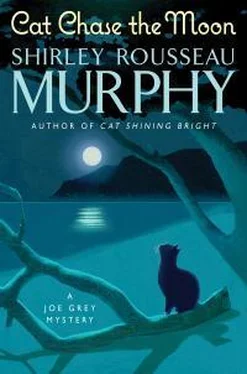
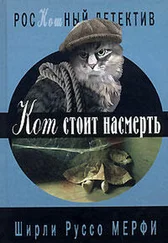
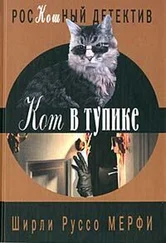
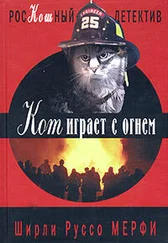


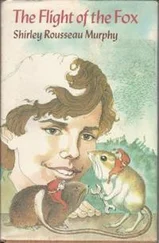
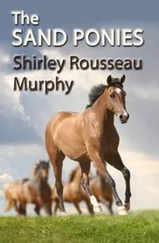
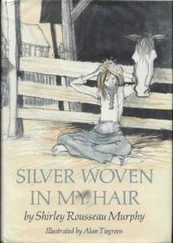
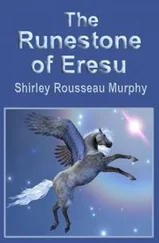
![Ширли Мерфи - The Shattered Stone [calibre]](/books/436059/shirli-merfi-the-shattered-stone-calibre-thumb.webp)

